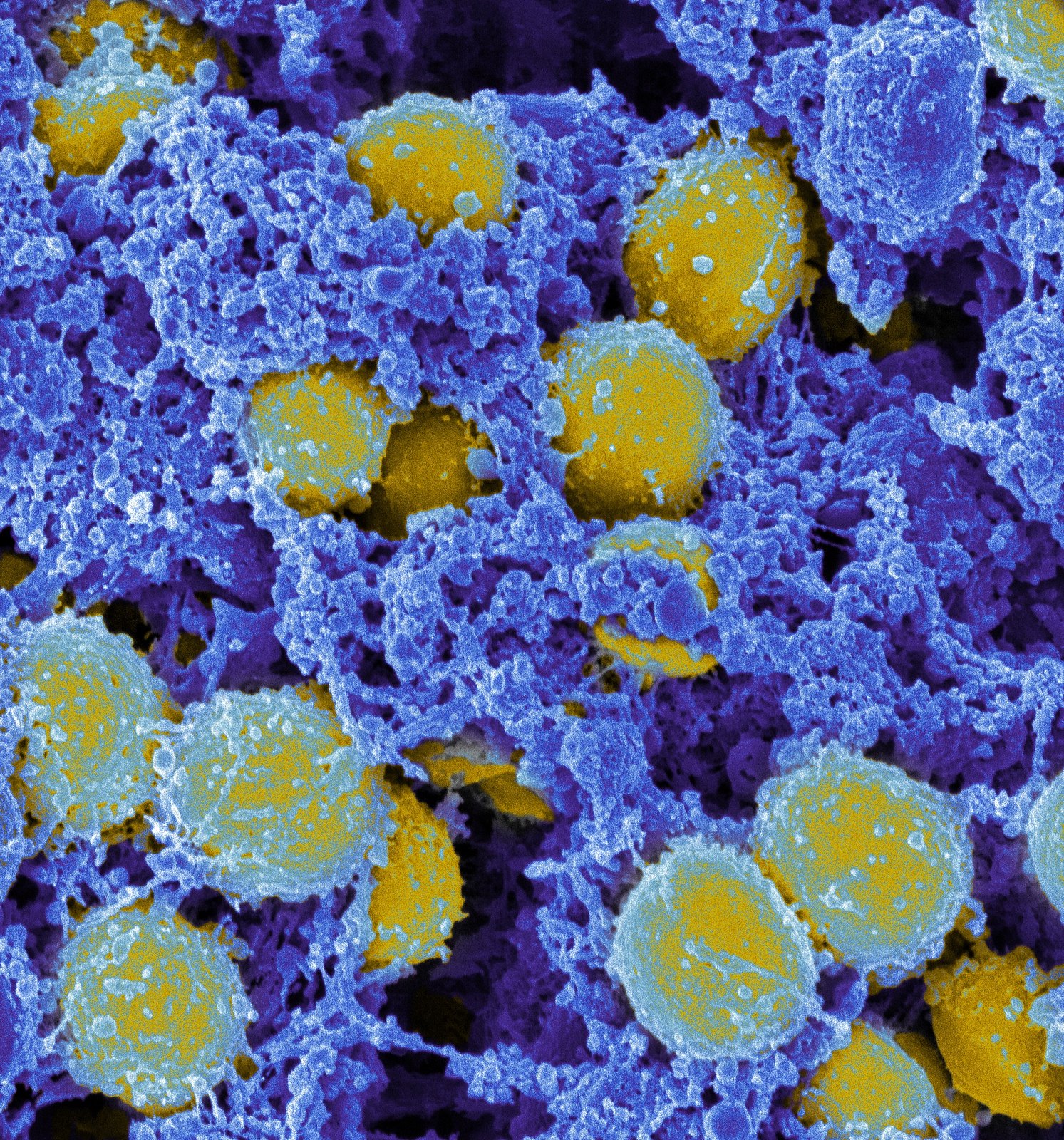At a Glance
- A probiotic lessened the volume of Staphylococcus aureus, or “staph,” germs in the human intestine and nose without having harming effective intestine microbes.
- The benefits suggest a way to protect against harmful S. aureus infections without having antibiotics.
Antibiotic-resistant microorganisms have turn into a main community well being menace. The deadliest such pathogen in the United States is Staphylococcus aureus. Serious and even fatal bacterial infections come about when the micro organism get into the blood, lungs, bone, or decreased layers of the skin. But S. aureus can also dwell in the nose, on the pores and skin floor, and in the intestine without having producing any hurt. Numerous S. aureus infections get started as this symptom-cost-free colonization, which may take place in a quarter to a third of the population.
Decolonization—eliminating the symptom-totally free bacteria—could reduce damaging S. aureus bacterial infections. Former decolonization techniques have applied topical antibiotics or antiseptics to get rid of S. aureus from the nose or skin. These endeavours have experienced limited good results, probably simply because they never affect S. aureus in the gut. Decolonizing the gut would require oral antibiotics. But this challenges harming the effective intestine microbes that typically support prevent infections. It could also lead to more antibiotic resistance.
In earlier operate, an global investigation crew led by Dr. Michael Otto at NIH’s National Institute of Allergy and Infectious Health conditions (NIAID) discovered that one more species of germs, Bacillus subtilis, secretes molecules that inhibit S. aureus colonization. An oral probiotic containing dwell B. subtilis spores removed S. aureus from the guts of mice. This suggested that probiotics may well decolonize S. aureus from the human gut without the need of the risks that go with antibiotics.
The scientists tested this strategy by conducting a medical trial in Thailand with collaborators from Rajamangala University of Technological innovation Srivijaya and Prince of Songkla University. The group screened far more than 600 folks and found 115 who experienced S. aureus in their intestine, nose, or equally. These were assigned at random to consider possibly a B. subtilis probiotic or placebo everyday for 4 weeks. Benefits appeared in Lancet Microbe on February 1, 2023.
Just after 4 months of probiotic treatment method, S. aureus in the stool, a proxy for intestine S. aureus, declined by 97{33c86113bcc32821f63c6372852a0f501e07fff55ce3ce61b15b246c5f8c531c}. S. aureus in the nose declined by 65{33c86113bcc32821f63c6372852a0f501e07fff55ce3ce61b15b246c5f8c531c}. Among the consequences on these two sites, the scientists approximated that probiotic remedy acquired rid of at least 95{33c86113bcc32821f63c6372852a0f501e07fff55ce3ce61b15b246c5f8c531c} of S. aureus in the human physique. In the people today receiving placebo cure, S. aureus quantities did not adjust in both the gut or nose. The group uncovered no other adjustments in microbiome composition amongst individuals who took the probiotic. They also observed no variations in side effects among the remedy and placebo groups.
The success counsel that B. subtilis probiotics could safely and securely reduce S. aureus colonization in the human body. This kind of a approach could assist decrease infection rates, specifically in significant-danger options these kinds of as nursing homes. This examine also demonstrates the relevance of concentrating on the intestine for S. aureus decolonization in normal. Decolonizing the gut led to a large reduction in S. aureus during the system. In distinction, decolonizing the nose only influences a little section of the body’s full S. aureus.
“The probiotic we use does not ‘kill’ S. aureus, but it particularly and strongly diminishes its ability to colonize,” Otto claims. “We feel we can focus on the ‘bad’ S. aureus while leaving the composition of the microbiota intact.”
Funding: NIH’s Nationwide Institute of Allergy and Infectious Diseases (NIAID) Countrywide Research Council of Thailand.





More Stories
White House plans to nominate cancer center chief to lead NIH
What Happens to the Brain in Alzheimer’s Disease?
Biden Plans to Pick Monica Bertagnolli to Lead National Institutes of Health